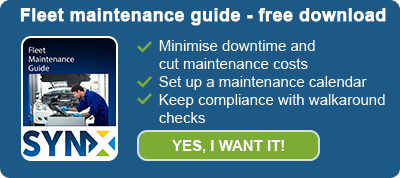
Our fleet management blogs are always reiterating just how important it is to have an appropriate maintenance program in place, including regular vehicle checks, so as to keep fleets running smoothly.
Daily tyre checks are an essential part of the overall maintenance programme, guaranteeing efficient fleet operations for a number of reasons:
• The conditions of your vehicles’ tyres are a reasonable indicator as to the overall state of the vehicle itself, helping you to anticipate and avoid breakdowns;
• Wheel-alignments help increase fuel efficiency;
• Tyre/wheel defects found on your vehicles may result in fines, penalty points, sanctions;
• Maintaining the correct tyre pressure and, as a consequence, preserving the tread, also helps save fuel.
Up until now we have been examining the “best practices” regarding vehicle maintenance; do you know how often your fleet vehicle tyres are actually being checked?
According to a survey carried out by WheelRight in the UK, last year (whose results were published by Fleet News in September, 2014), nearly half of the interviewed fleet’s staff (44.1%) only check their tyres once a quarter, a third (29.4%) of fleet managers are not aware of how often tyre checks are carried out. The poll of 100 company fleets concludes that approximately 75% of their managers have little idea of how frequently tyres are checked or they admit to knowing that their drivers are not checking enough.
The condition of tyres are of paramount importance as far as vehicle safety is concerned; tyre-related breakdowns are extremely frequent, as are accidents caused by defective tyres.
Complete vehicle checks, including tyres might take up time, but if not performed on a regular basis they might seriously influence the stability of a vehicle and the ability to brake effectively, leading to a serious collision.
Never be complacent, because of perceived time constraints, when it comes to safety and efficiency—if you are really pressed for time and need a good fleet-management system to take the pressure off maintenance... why not contacting us?



